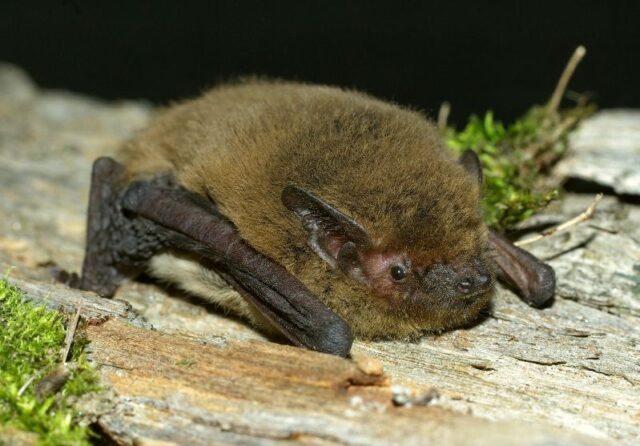A passive bat detector, left outside to automatically trigger and record bat calls as they fly over, set up in a garden in West Sussex as part of the Chichester Bat Recording Project, has recorded the social calls of the extremely rare Kuhl’s pipistrelle.
Normally found around the Mediterranean, Kuhl’s Pipistrelle is believed to be a rare visitor to Britain with only a handful of records to date. Kuhl’s pipistrelle can easily be overlooked because it produces echolocation calls that are very similar to Nathusius’ pipistrelle, which is commoner in the UK, but its social calls are different and diagnostic.
Over three nights this summer, a bat detector used in a garden as part of the citizen science project logged 55 audio recordings that contained the social calls of Kuhl’s pipistrelle. It is likely that these would have been missed if it wasn’t for the BTO’s Acoustic Pipeline, which identified these automatically as Kuhl’s pipistrelle, and so flagged that something special had been recorded at this location.
Ken and Linda Smith, co-ordinators of the bat recording project for Chichester Natural History Society, said, “We started using the bat detector four years ago, leaving it overnight in the gardens of Society members and their friends and have been amazed by the number of bat records at every garden. Coming across this rare bat is very exciting and shows how much more there is to learn about these fascinating animals”
Dr Stuart Newson, lead scientist on bat monitoring at the BTO, said, “I am really excited by this finding. It is thought that the range of Kuhl’s pipistrelle is expanding northwards, so it is interesting to speculate whether this represents a vagrant or an establishing population”.
The BTO Acoustic Pipeline provides the infrastructure for anyone in western Europe to upload recordings to a secure remote server in the cloud, and for them to be processed to find and identify biological sounds to species, and to return the results back to the users computer.




